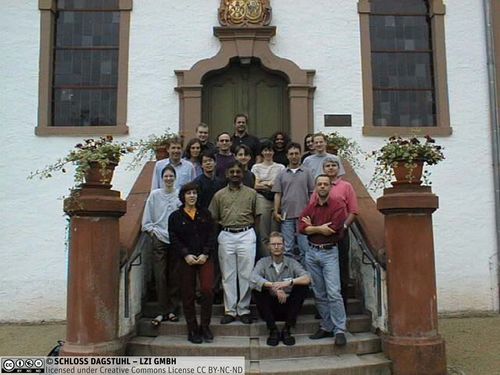Dagstuhl Seminar 99261
Foundations for Information Integration
( Jun 27 – Jul 02, 1999 )
Permalink
Organizers
- A. Levy (Seattle)
- D. Florescu (INRIA Rocquencourt)
- G. Moerkotte (Mannheim)
- S. Abiteboul (INRIA Rocquencourt)
Contact
We are currently witnessing an explosion in the amount of information that is available on-line (e.g., sources on the Internet, company-wide intranets, etc). Providing easy and efficient access to this information---known as the problem of data integration raises an important challenge to several fields of Computer Science including Database Systems, Artificial Intelligence, Operating Systems, Networking and Human Computer Interaction.
The challenge is to develop techniques for providing uniform access to the wealth of available information. Usually, data integration is achieved by providing the user a mediated schema that hides the details of each of the data sources, and lets the user focus on specifying what he wants, rather than specifying how or where to find the information. The data integration problem is complicated by the fact that the data sources are autonomous, employ different data models and are heterogeneous both semantically and syntactically. Furthermore, the data sources are often only semistructured (e.g., they do not have explicit schemas, the schemas are unknown, or the sources contain extraneous information such as advertisements or other information meant for human consumption). The techniques that need to be developed include modeling of the contents of information sources, high-level query facilities, flexible approaches to selecting relevant sources, novel methods for query optimization and flexible query execution models.
The purpose of this workshop is to bring together researchers working on topics relating to data integration. Data integration is a very broad area and therefore we plan focus on the topic of appropriate data models for data integration as well as on query languages and query optimization and execution.
- A. Levy (Seattle)
- D. Florescu (INRIA Rocquencourt)
- G. Moerkotte (Mannheim)
- S. Abiteboul (INRIA Rocquencourt)


